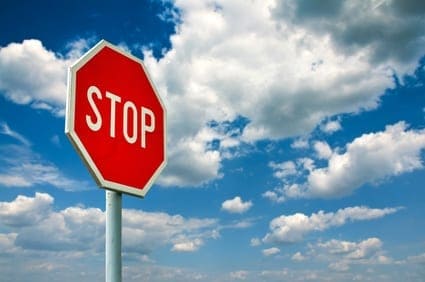
Great Trading Books
If you’re interested in trend following strategies for equities, then obviously my book Unholy Grails, is perfect. If you’re looking for a book on discretionary trading end of day, try say Curtis Arnolds ‘PPS Strategy’ which is one of my most successful short term mean reversion strategies that I’ve ever traded –I still have clients trading it today. It was an adaptation of Larry Williams’ “oops pattern.” You wouldn’t trade the “oops patent” on its own in this day and age but taking it and making it your own can make a big difference.
That’s how some of our strategies operate. It’s like our current longer term trend following strategy. It is a Bollinger band breakout strategy but, we’ve made it our own. We have a much more advanced Bollinger band than what is normally used. We have changed the stops and the position sizing etc. We’ve taken this basic template and made it our own, and I think that’s very important.
So, by all means buy some books to get some ideas on trading. You’ve then got to take that and understand why it’s making money. I don’t think people truly understand why their strategy makes money. I think the more you understand why a strategy makes money, and then the closer you are to being in a position where you’ve got it and you can trade profitably. When a five day moving average goes up across a Bollinger band and a right of change is above x and y, that’s not why the strategy is profitable.
If you go to any of these trading expos with these guys selling software that are promising you the world, ask them, “Why does your system make money?”, and if they can’t give you the mathematical reason why, then it’s all garbage. That’s what it comes down to, understanding the edge your strategy has and why it’s going to continue to make money. That’s why trend following in my view is such a powerful strategy. Markets have to trend –they can’t not trend. Yes, they can go through periods where it goes sideways but that doesn’t mean it’s broken. It just means the strategy is out of sync, and you’ve just got to be patient. It’s like any business.
You think of the banking industry in the U.S., during the GFC the banking industry went through a huge tumultuous time. Banks didn’t all of a sudden morph into airline companies because banking was difficult…or vice versa. Think of airlines, these are tough businesses. They don’t turn around and become a resource minor or anything like that because airlines are difficult. You get my point? They stay with what they do and they understand that good times will come along and bad times will come along. As in retail as well. Walmart would go through difficult periods of time but they don’t turn themselves into an airline because it’s a difficult period in retailing.
For some unknown reason when it comes to trading, a lot of people as soon as they hit a speed bump or a hurdle they think they’ve got to change strategy, and they go around and around. Every strategy is going to hit a hurdle. I don’t care if your name is Warren Buffett, George Soros, whatever. There’s going to be periods of time when it’s difficult. It’s at that period of time when they hit a speed bump that defines a professional and an amateur. A professional will keep going. They will see it through because they truly understand that their edge will dominate over the longer the term.
All great traders just go through it, whereas an amateur, as soon as they hit a speed bump they go “Oh, there’s something wrong with the strategy, I better do something else.”, so they go to strategy number two and they trade that for a little while and if the same thing happens they go and look for something else. Around and around they go. The truth is their first strategy was probably fine, they just gave up on it.
I think that really is the difference between a professional and an amateur, and I also think that’s the reason why people get caught up buying so many courses and go into attending so many courses –those weekend warrior courses that cost twenty-five thousand dollars and whatnot. I’ve met people that have done that. I think it’s important to get some ideas. There’s no point in spending twenty-five thousand dollars, it’s not going to be beneficial and more so than a book will. It might make you feel better because you spent a lot of money, but at the end of the day I don’t think the value is there.
Once you’ve found a strategy that suits you, then make it your own.
If you take the time to research the great traders, you will find that is not the case. I have no doubt that there are traders out there that make consistent money weekly and monthly –I certainly know a few that do. Don’t get me wrong, these people –and there are only a handful of them, are innately talented, and they are the Tiger Woods of the golfing world. Your average hacker at the local par three, he understands that he’s never going to be a Tiger Woods but he just wants to go out and enjoy the game. When it comes to trading you think, “Yeah I want to be the next Tiger Woods!”, and it’s not going to happen.
I think you’ve just got to suck it up and put your ego aside and say, “Hey, I’m never going to be a Tiger Woods but you know what? I want to go out, I want to have a game of golf, I want to enjoy it, I want to get better each month!” That’s what you have to aspire to, that’s what it’s all about. People seem to think, when it comes to trading it’s about making as much money as you can, as quickly as you can, with zero work.
I remember back in 2007 when we did some seminars around Australia and we charged two hundred and twenty dollars for a full day seminar and there was guy in the seminar who said he’d done a twenty-five thousand dollar course. I asked him, “What are you doing here in a two hundred dollar seminar, after you’ve done a twenty-five thousand dollar one?” His answer? “I still don’t know how to trade.” So, you’ve got to be careful, there is no secret to trading and the secret is certainly not in a twenty-five thousand dollar course.
First of all, find a strategy that suits you. Understand why the strategy has an edge, and if you don’t understand that do not start trading until you do understand. Learn about risk management. Van Tharp is obviously someone that has some good books. I think ‘Trade Your Way to Financial Freedom’, is probably all you need. The biggest hurdle is the one between your ears. You really need psychological fortitude. If it was so easy to trade then everybody would be doing it.
Other books include ‘The Complete Turtle Trader’ by Michael Covel. I actually bought all the stock available in Australia a couple of years ago and gave it to my clients because I thought it was such an important read. It’s not technical in a sense.
I think other books like Nicholas Darvas, ‘How I Made $2,000,000 in the Stock Market’. I would call that a holiday read. ‘Market Wizards’, one and two, there is so much wisdom and logical information in there.
I rarely read trading books at all these days. I just read fiction to get my mind off the market. My mind ticks about the market all the time, and the only way I can get off the subject is reading fiction, and I do read a lot. That’s important for me as in individual to turn my mind off trading and turn my brain off charts and programming. The way I do that is I read fiction books. Oh, and I go fishing.

